Food distribution falls despite high inflation
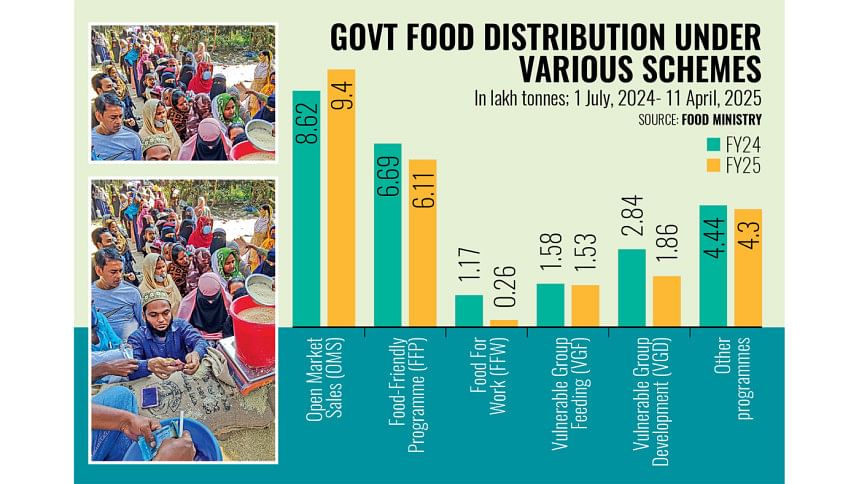
Although stubborn inflationary pressures have worsened the situation of poor people in recent years, public food distribution under various social protection schemes fell by more than 7 percent year-on-year in the first three quarters of the current fiscal year, driven by political instability and dysfunctional local governance.
Public agencies, including the Directorate General of Food and the Ministry of Disaster Management and Relief, distributed about 23.46 lakh tonnes of rice and wheat through food distribution programmes until April 11 of fiscal year 2024-25 (FY25), according to food ministry data.
This was a marked decrease from the 25.34 lakh tonnes distributed by state agencies between July 1 and April 11 of the fiscal year prior.
Selim Raihan, executive director of the South Asian Network on Economic Modeling (SANEM), said one possible reason for the decline was the political changeover last year affecting distribution channels.
Identifying the decline as "a cause for concern", he added that there should have been an alternative system for basic social protection activities.
Raihan added that though vegetable prices fell during winter owing to ample supply, prices of fresh summer produce remained high. So, low-income people remain in a state of hardship.
According to the Bangladesh Bureau of Statistics (BBS), inflation has remained at over 9 percent since March of 2023. After declining for each of the past three months, overall inflation in Bangladesh increased to 9.35 percent in March as non-food prices spiralled to 9.70 percent.
The 12-month average inflation stood at 10.26 percent in March.
Against this backdrop, a reduction in food distribution is unexpected, said Raihan, also a professor of Economics at the University of Dhaka.
The Awami League government, which was ousted by a mass uprising on August 5 last year, had slashed food distribution plans this fiscal year, lowering its target from 33.56 lakh tonnes in FY24 to 30.3 lakh tonnes in FY25.
Instead, the government should have expanded food distribution activities during the prolonged inflation regime, he said.
Increasing allocation for food distribution programmes does not contrast with the conditions laid out by the International Monetary Fund (IMF) for a $4.7 billion loan programme.
The IMF's condition is related to cutting subsidies in the energy sector, not those for social safety net programmes, Raihan said.
Until April 11, food distribution through the Open Market Sales programme saw an uptick, rising 9 percent year-on-year to 9.40 lakh tonnes.
Under the Food Friendly Programme, the relief and disaster management ministry distributed 6.11 lakh tonnes, down 8.6 percent.
Food distribution plunged in the Food for Work (FWP) programme, implemented by the Department of Disaster Management, and in the Vulnerable Group Development (VGD) programme implemented by the Ministry of Women and Children Affairs.
Distribution under the FWP programme dipped 78 percent year-on-year to 26,249 tonnes while that under the VGD programme fell 34 percent to 1.86 lakh tonnes.
Jahangir Alam Khan, a former member director of the Bangladesh Agricultural Research Council, pointed out some possible reasons, saying the list of distributors was shuffled and the government had comparatively lower food stocks and food imports.
Economic pressures may also have made it difficult to open letters of credit (LCs) to import food, he said, adding that the private sector may believe food imports to be unprofitable.
If the government could distribute more food, it may help reduce the overall prices of rice in the market, he said.
Raihan said that the impact of the social safety net programmes may be improved by cutting corruption and leakages in the distribution chain, adding that even the Awami League government acknowledged that such ills persist.
However, no visible steps have been taken yet in this regard. Many people who continue to get benefits are ineligible and many are not on the beneficiary list although they deserve to be there, he added.
Md Masudul Hasan, secretary of the Ministry of Food, said distribution efforts were disrupted as many local government representatives were unavailable while many others fled.
"So, distribution activities were disrupted. The government has already found alternative distribution channels. The food ministry distributes food through many other ministries. They are also coming forward to continue the activities."
He hoped food distribution would meet the target at the end of the year.
The interim government is set to increase its allocation for food subsidies by nearly 12 percent to Tk 8,100 crore in the upcoming fiscal year to intensify food distribution programmes and provide a cushion to low-income groups.

 For all latest news, follow The Daily Star's Google News channel.
For all latest news, follow The Daily Star's Google News channel. 

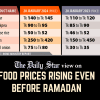
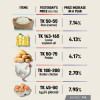
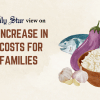

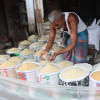


Comments